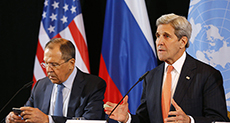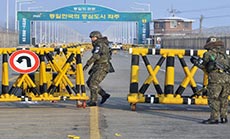
"Israeli" Military finds its army bases not sufficiently protected against Resistance

By Amos Harel
The "Israel" Military Forces' Operations Directorate last week established a new department in the General Staff, tasked with coordinating the security and protection of army bases. The decision to establish the department was made about a year ago, in the understanding that the bases could constitute a target in any future war, and also on the backdrop of the poor security situation in some of the camps.
The establishment of the new department is part of a reorganization of the Operations Directorate, headed by Brig. Gen. Aviv Kokhavi. The department is supposed to identify the "Israeli" Military Forces' security needs, following an analysis of the threat missiles and rockets pose for the home front. Both in the Second Lebanon War and in the recent Gaza campaign, the enemy (Hizbullah and later Hamas) attempted to aim the rockets at the bases. The army assumes that in a broader conflict, with an opponent - Syria, for example - who is able to strike with more precision than the (so-called) terror organizations, the home front bases could absorb heavy fire. Such attacks would interfere with the sorties of "Israel" Air Force planes to attack enemy targets, and would make it difficult to call up reservists and equip them at the emergency storage units.
During the past two years, efforts were made to map the bases' needs, and initial activities have improved the protection at some of them already. In addition, instructions have been issued on how to behave at the bases during an emergency, and rules have been formulated on future construction, with the goal of reducing the danger of a missile strike. The "Israeli" Military Forces would like to guarantee that even when under missile attack, the units at the bases will be able to function and carry on with their activity.
In addition, the new department will deal with security on the home front - from the level of the individual soldier to the securing of delegations, senior officials and even army camps. The "Israeli" Military Forces understands that many bases constitute relatively accessible targets for terror attacks. Gross security lapses - sometimes even amounting to instances of serious negligence in defending the bases - have been exposed in many camps. About three years ago, a report by a Knesset Foreign Affairs and Defense (War) subcommittee, headed by MK Ephraim Sneh, discovered grave failures in this respect.
The army points out that the decision to make the new department responsible for this matter was made long before last week's broadcast of the investigative report on Channel 2's Shtulim (Planted) program, which illustrated how easy it is to infiltrate sensitive bases. In the past year, the Operations Directorate has conducted over 130 inspections at various "Israeli" Military bases, in order to check security measures.
The new department is already conducting ongoing briefings for all officers and soldiers working in "Israeli" Military delegations abroad, to ensure that cautionary measures are observed. In addition, every week the department publishes intelligence assessments, in cooperation with the various security branches, to identify specific risks related to the delegation's trips.
Col. Shmulik Kalami, a paratroops officer who also serves as the reserve commander of the Paratroops Brigade, was appointed head of the new department. Starting this summer Kalami will be concentrating solely on the job as department head.
Comments

Kerry to Hold Fresh Talks with Russia on Syria
8 years ago
All but 4 Nations are Subject to NSA’s Espionage
10 years ago
Koreas Agree to Re-open Kaesong Industrial Zone
11 years ago